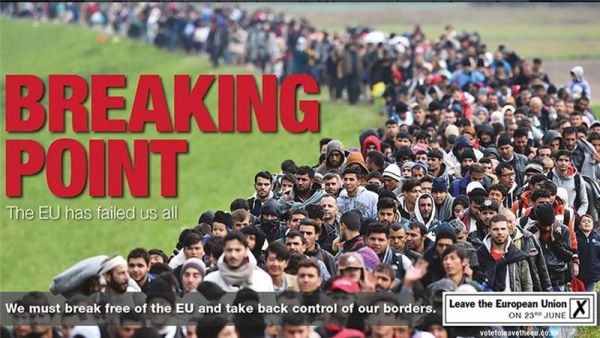For the UK, it’s the day of reckoning. After months of debate and campaigning, and a struggle that’s got pretty dirty at times, the population of Britain is voting on whether they’ll leave, or remain in, the European Union.
It’s an existential question for Brits, who’ll be glued to the news today. In the rest of the world, the influence of this little island has always reached far beyond its narrow borders. But how would a Brexit effect those of us the Middle East?
A more interventionist stance?
Some commentators speculate that Britain might take a more interventionist stance if it walks out of the Union. This little nation, after all, has always had an impact far disproportionate to its small size.
On the other hand, the UK will be preoccupied by maintaining its financial security after a Brexit. That will affect its ability to see through grandstanding, long-term plans for MENA. The Middle East Peace Process will likely be affected, and British development projects will focus only on those things with direct impact on Britain’s interests – including Syria and terrorism.
Strategic alliances might not be affected
British foreign policy is largely defined independently of the EU, so much of its cooperation in the Middle East will continue as normal. But leaving the EU will mean it’s not bound by certain point of policy and law defined by the EU - such as regulations and advice on the labelling of products from Israeli settlements.
The stance of the EU might be more affected, however, by the departure than the country that leaves. Britain is regarded as a conservative influence in some areas: it’s one of the most pro-Israel members of the alliance, so the operations of the Union might change if Britain leaves.
Trade ties will likely be renegotiated
The Middle East is a major trading partner for the UK – $18 billion of British exports went to MENA in 2014. If it steps out of the EU the ties it enjoys with some other countries would have to be renegotiated. It will mean a great deal of financial uncertainty for British, European and global markets, and that will affect expats and locals alike.
In the case of a Brexit the UK is likely to concentrate on building strong trading links with the rest of the world. That might be a good things for the countries making friends with it – Britain has less leverage alone than as part of the EU. But it does mean Britain can make flexible adjustments to its trade agreements, allowing them to be more tailor-made than those with the whole of Europe.
Refugee opportunities might not be affected a whole lot
Much has been made of the idea that Brexit might allow Britain to “take back control” of its borders. But while it’s meant more migration from EU countries, movement of people from MENA to the UK hasn’t been made a lot easier by the EU. Last year, for example, the Union agreed to redistribute 160,000 asylum seekers around EU countries, but so far only a few thousand have been relocated.
Brexit would mean that the UK is no longer party to the Dublin regulation, which means that members can deport asylum seekers to their first point of entry in the EU. That might affect those already in the UK, but it’s perhaps not likely to have a big impact on a lot of people.
But it’s a bad indication of a less tolerant society
The Brexit camp have hardly been waiting for the arrival of refugees with open arms. In fact, their campaign has rested on some pretty heavy anti-immigrant rhetoric. Last week, UKIP put up a billboard ad with a photograph of crowds of refugees waiting in Europe and the slogan “Breaking Point”. It spoke to popular sentiments that Britain is “full”, and that refugees from the Arab world pose a threat to Britain’s “way of life”.
The poster was slammed by the left for inciting racial hatred, and when it was promptly followed by the murder of a Labour MP by a right-wing extremist those fears appeared well founded. And in the event of a Brexit, these anti-migrant sentiments are likely to further dominate society – it’s even been suggested that the Prime Minister, who’s in favour of remaining in the EU, could be forced to resign.
A world without the EU?
What might have a big impact on the Middle East, however, is the potential long-term effect of Brexit on the rest of the EU. Some commentators speculate that the departure of Britain might lead to the break-up of the whole Union – a dissolution that would have very significant effects for the whole world.
The EU has a great deal of clout in the Middle East - and a pretty heavy interventionist stance in many areas. If it breaks up, or scales down dramatically, it will mark the end of that regional clout. That will mean less foreign influence from Brussels. And it may mean that other alliances in the Middle East – such as the Gulf Cooperation Council – jump in to fill the power gap.







